Subscribe
Subscribe to receive emails from Teacher Institute and stay informed about Colonial Williamsburg instructional resources, teacher professional development opportunities, and scholarships.
Online Courses
Join the Bob and Marion Wilson Teacher Institute at Colonial Williamsburg for exclusive online teacher training courses. During the 2025 spring semester, the Teacher Institute will offer a three-week online course. This course will include both self-paced, asynchronous work and three live sessions held in Zoom with content experts and lead teachers from Colonial Williamsburg. The total time commitment for this course is around 30 hours.

Building Inquiry and Analysis Skills
February 3rd – February 24th, 2025
This online course focuses on teaching with a variety of primary source media, with an emphasis on student engagement, critical thinking skills, and meaning making. Participants should expect around five to eight hours of asynchronous, self-paced work per week and two-hour live class meetings to be held February 5th, February 12th, and February 19th at 7:00 PM EST. Each week will focus on different types of primary sources, where to find them, how to use them – and their limitations. Teachers of all grade levels are welcome, though it is primarily designed for upper elementary and middle school teachers. We encourage learners to register even if they are not able to attend all the live class meetings. Participants will receive professional development hours based on the components of the course they complete.
Register Now
Online Author Talk
The Bob and Marion Wilson Teacher Institute of Colonial Williamsburg is excited to offer author talks with some of the most well-known authors researching the colonial and early American time periods. During these online programs, teachers will hear about the author’s research process and upcoming new projects as well as have the opportunity to ask questions.

Making the Presidency: A Talk with Dr. Lindsay Chervinsky
January 9, 2025 | 7 P.M. EDT
In her latest book, Making the Presidency: John Adams and the Precedents That Forged the Republic, author Dr. Lindsay Chervinsky shares how the second president of the United States, John Adams, defined the presidency for those who followed and ensured the survival of the republic. Presidential transitions started with the steady hand of John Adams who set norms and customs that have consistently held for 200 years. Join us for a lively discussion with Dr. Lindsay Chervinsky, to learn about her research process and the origin of the precedents for presidential transitions. Participants who read Chervinsky’s book and participate in the discussion will receive a certificate for 6.0 professional development hours.
Register Now
Online Teacher Workshops
The Bob and Marion Wilson Teacher Institute of Colonial Williamsburg is excited to offer online workshops for teachers that cover a wide range of historical topics. Teachers who attend these online programs gain access to Colonial Williamsburg collections, curricula, and staff, all from the comfort of their home! Many of these programs include an interactive element and provide the opportunity to discuss resources and activities with educators from across the nation.

The Laws that Formed American Slavery
January 14, 2025 | 7 p.m. EDT
What are the historical origins of slavery? How did slavery evolve in colonial and early America? How can you accurately and effectively teach about this complex history in the classroom? Join the Bob and Marion Wilson Teacher Institute team and our guest speaker from Preservation Virginia, Mark Summers, to answer all three of these questions. Learn more about the laws that created race-based slavery in the eighteenth-century and the range of primary sources you can use to teach this history in the classroom. Participants will receive a certificate for 1.5 professional development hours for attending this session.

Debunking Myths and Misunderstandings with Thomas Jefferson
January 28, 2025 | 7 p.m. EDT
If you could go back in time to meet Thomas Jefferson, what questions would you ask him? What might your students want to know? Don’t miss this opportunity to hear from Kurt Smith who researches and portrays Thomas Jefferson as a Nation Builder with the Colonial Williamsburg Foundation. Together with Smith, you will unravel common myths and misunderstandings about Jefferson before he opens the floor to answer your questions. Time will be provided for peer discussion around how to unravel these common misunderstandings about Jefferson in the classroom. Participants will receive a certificate for 1.5 professional development hours for attending this session.

Debunking Myths and Misunderstandings with Hope Wright
February 4, 2025 | 7 p.m. EDT
If you could go back in time and meet a person from the past, what questions would you ask? What would your students want to know? Don’t miss this opportunity to hear from Hope Wright who researches and portrays multiple people of the past with the Colonial Williamsburg Foundation. Together with Wright, you will unravel common myths and misunderstandings about enslaved and free Blacks in early America. Then, you will have the chance to ask questions and discuss with your peers how to unravel these common misunderstandings in the classroom. Participants will receive a certificate for 1.5 professional development hours for attending this session.

Clementina Rind’s Revolutionary Press
February 11, 2025 | 7 p.m. EDT
During the American Revolution, most women stayed at home, right? Although women typically worked at home, during the American Revolution, women played vital roles in the fight for independence including running printing businesses. When her husband died in 1773, Clementina Rind took over her husband’s printing press and fought to keep the public printing contract her husband had earned. Learn more about Rind’s story and examine a range of primary sources that can help students better understand women’s revolutionary roles in the 1770s. Participants will receive a certificate for 1.5 professional development hours for attending this session.

Debunking Myths and Misunderstandings with Martha Washington
March 4, 2025 | 7 p.m. EDT
If you could go back in time to meet Martha Washington, what questions would you ask her? What would your students want to know? Don’t miss this opportunity to hear from Katharine Pittman who researches and portrays Martha Washington as a Nation Builder with the Colonial Williamsburg Foundation. Together with Pittman, you will unravel common myths and misunderstandings about Martha Washington before she opens the floor to answer your questions. Time will be provided for peer discussion around how to unravel these common misunderstandings about Mrs. Washington in the classroom. Participants will receive a certificate for 1.5 professional development hours for attending this session.

The Gunpowder Incident
April 8, 2025 | 7 p.m. EDT
Did you know an early battle of the Revolution almost happened in Virginia? Mere days after the battles of Lexington and Concord, Virginia’s royal governor, John Murray, 4th Earl Dunmore, ordered Royal Marines to remove the gunpowder from the public powder magazine in the center of town. His decision angered many colonists and almost resulted in a bloody confrontation. On the 250th anniversary of this event, dive into the story of what became known as the Gunpowder Incident and its role in the lead-up to the American Revolution. Then discuss with your peers how to teach about this history in your classroom. Participants will receive a certificate for 1.0 professional development hours for attending this session.

Teaching the Louisiana Purchase through Primary Sources
April 17, 2025 | 7 p.m. EDT
Learn more about the Louisiana Purchase and unique primary sources you can use to teach about this event! In 1803, the United States acquired around 827,000 square miles of land from France for $15 million. This purchase had far-reaching impacts on the shape and future of the United States. Join the education teams at Colonial Williamsburg and the Historic New Orleans Collection for this engaging discussion about the causes and effects of the Louisiana Purchase as we share a range of resources that can bring this history to life for your students. Participants will receive a certificate for 1.5 professional development hours for attending this session.

Espionage in the American Revolution
May 1, 2025 | 7 p.m. EDT
Learn about the James Bonds and Jason Bournes of the American Revolution! In the lead-up to and during the American Revolution, intelligence gathering was vital in giving American forces an advantage in the war. Join the education teams at Colonial Williamsburg and the International Spy Museum for this engaging discussion about the role of espionage in early America as we share a range of resources that can bring this history to life for your students. Participants will receive a certificate for 1.5 professional development hours for attending this session.

Jefferson, Piracy, and War in Early America
May 20, 2025 | 7 p.m. EDT
Pirates didn’t just sail the Carribean seas! When Thomas Jefferson became president in March of 1801, he confronted a decades-long challenge of pirate attacks against American ships. Jefferson’s refusal to pay ransoms or tributes to pirates kickstarted a series of wars known as the Barbary Wars. Join the education teams at Colonial Williamsburg and Monticello to dive into the history of piracy in early America and discuss how to teach this history in the classroom! Participants will receive a certificate for 1.5 professional development hours for attending this session.
Onsite Residential
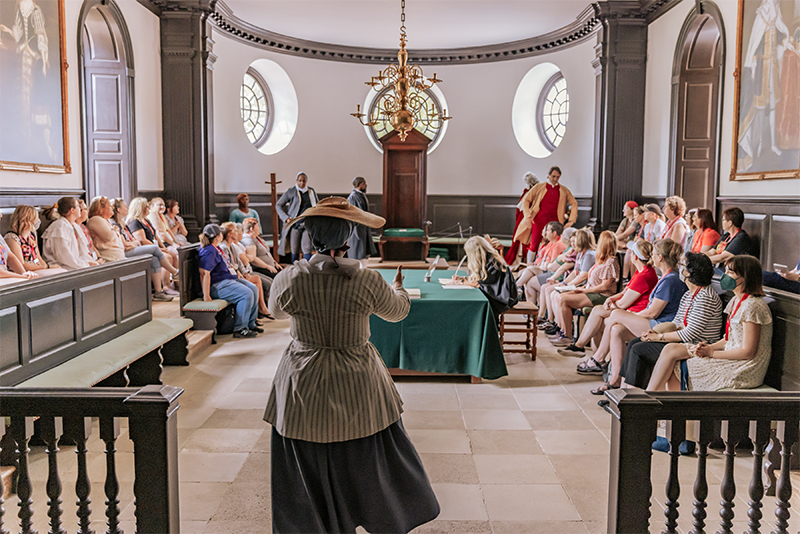
Becoming We the People
Teaching US History to 1787 (Elementary)
June 8-13, 2025
July 6-11, 2025
July 20-25, 2025
July 27-August 1, 2025
In 1787, 11 years after the Declaration of Independence stated that “all men are created equal”, the U.S. Constitution established a new form of government for “we the people of the United States.” How did thirteen distinct colonies come together to form one nation? Who did the phrase “we the people” refer to when it was written in 1787? What does it mean to be a citizen of the United States? Participants will explore these questions by learning about the daily life in the American colonies from the period of British colonization through the American Revolution. During this course, elementary teachers will be immersed in hands-on activities, primary sources, and teaching strategies that highlight the stories of the diverse peoples living in Virginia and the American colonies during this period.
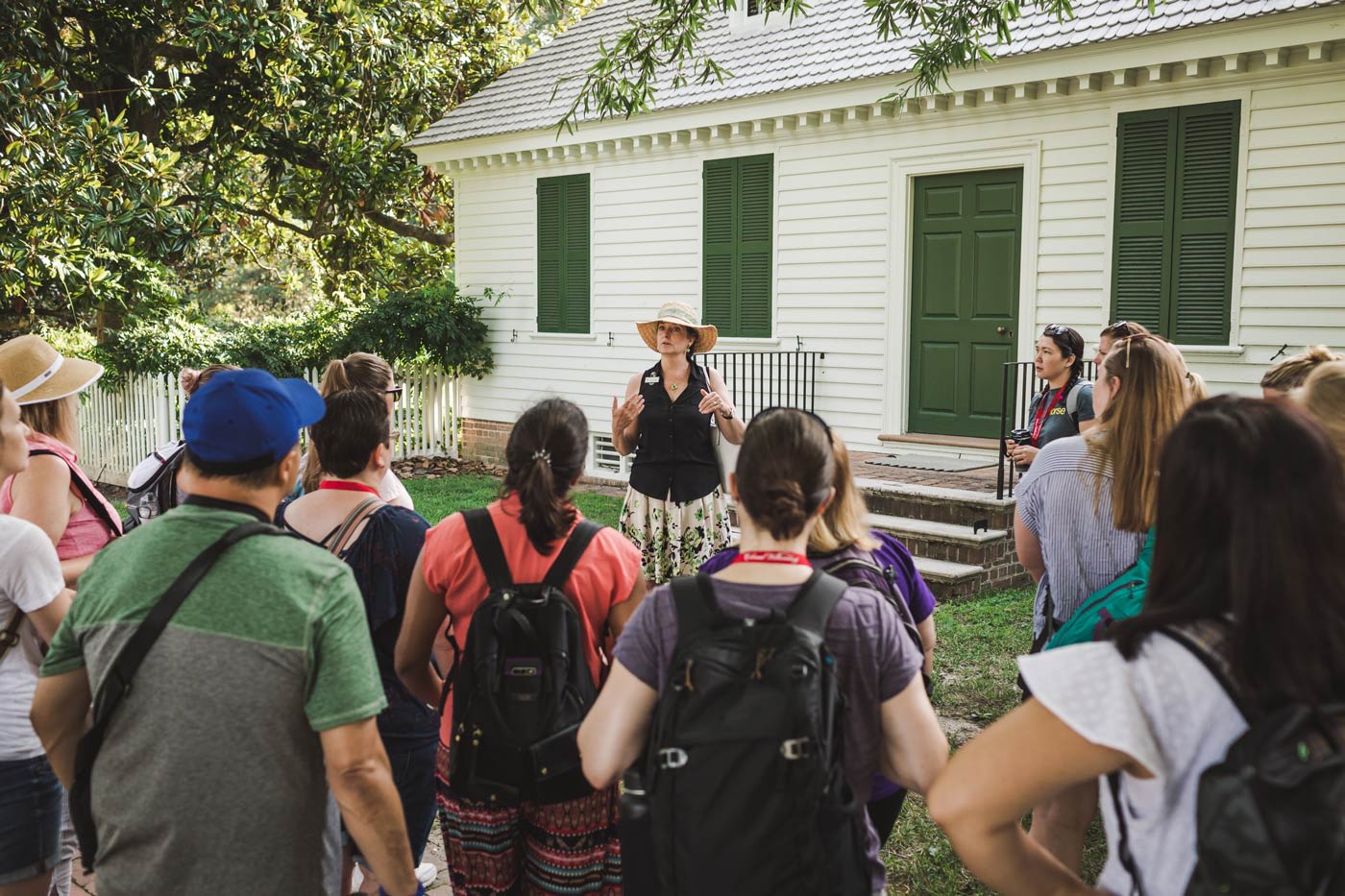
Forming a More Perfect Union
Teaching US History to 1870 (Secondary)
June 8-13, 2025
June 22-27, 2025
July 6-11, 2025
July 27-August 1, 2025
The founding documents of the United States established the ideals at the core of our nation and government. From the inception of the United States, however, our nation has imperfectly lived up to these ideals. What are the founding ideals of the United States? How has the United States lived up to and failed to live up to these ideals? What does it mean to “form a more perfect union”? Participants will explore these questions by learning about the paradoxes at the heart of the American Revolution and how different groups of people have worked to more fully live up to the promises of the founding generation. Through inquiry-based analysis of primary sources, middle and high school teachers will examine how our founding ideals inspired citizens to shape and change our nation from the first American colonies through the Civil War.
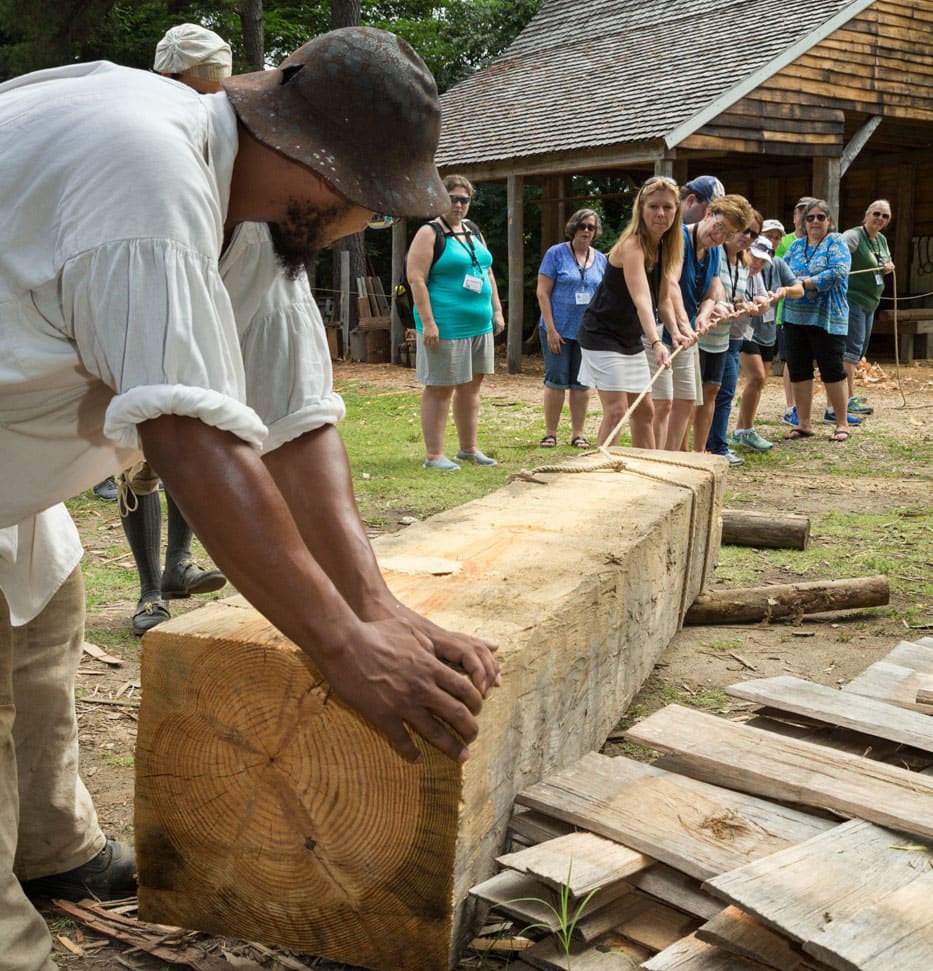
STEAM to the Past, Design for the Future
Intended for educators in grades 3-8
July 6-11
July 13-18, 2025
July 27-August 1, 2025
This seminar explores the interdisciplinary links between eighteenth-century history and STEAM in the daily lives of American Indians, British colonists, and free and enslaved Black individuals. Participants will compare the experiences of the three diverse groups of people, specifically applied to STEAM—the sciences, technology, engineering, art, and math. Participants will engage with historical interpreters, investigate applied science principles such as design and engineering, chemistry, transportation, and energy, and combine these experiences into dynamic classroom lesson ideas that incorporate primary sources, collaboration, inquiry, and problem solving.
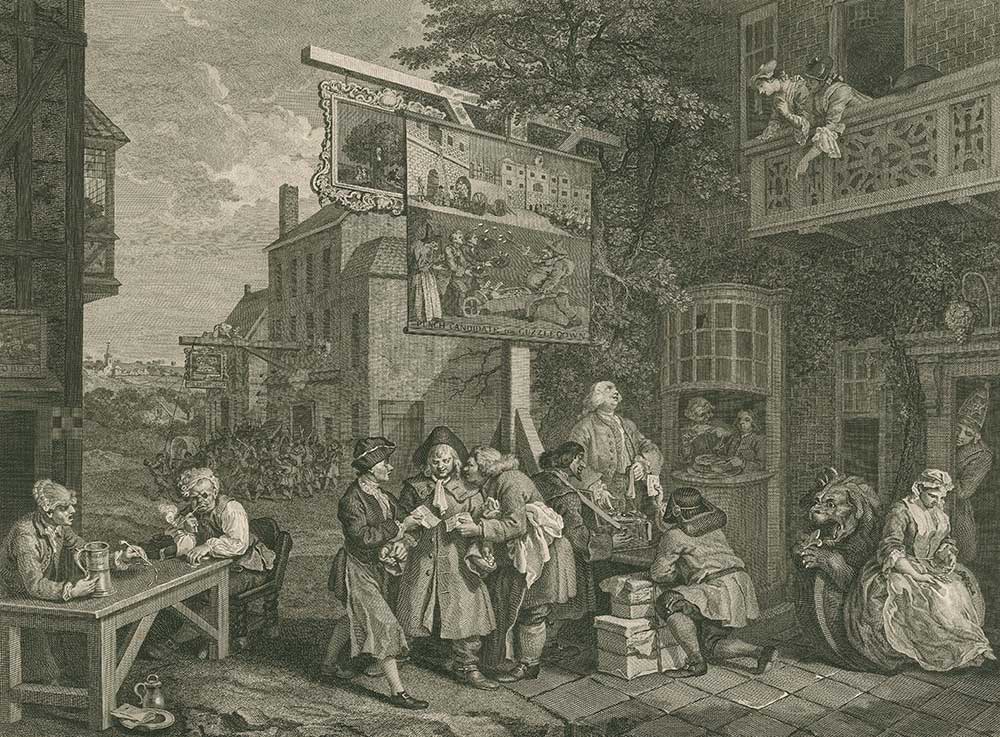
Agents of Change:
Civic Engagement, Past and Present
Intended for educators in grades 3–8
June 22-27, 2025
July 20-25, 2025
This seminar explores the stories of civic leaders, civic participation, and civil disobedience across diverse perspectives in eighteenth-century Virginia. Participants will engage with historical interpreters, analyze primary sources, and gain teaching strategies that connect the past to the present in meaningful ways to inspire civic action.
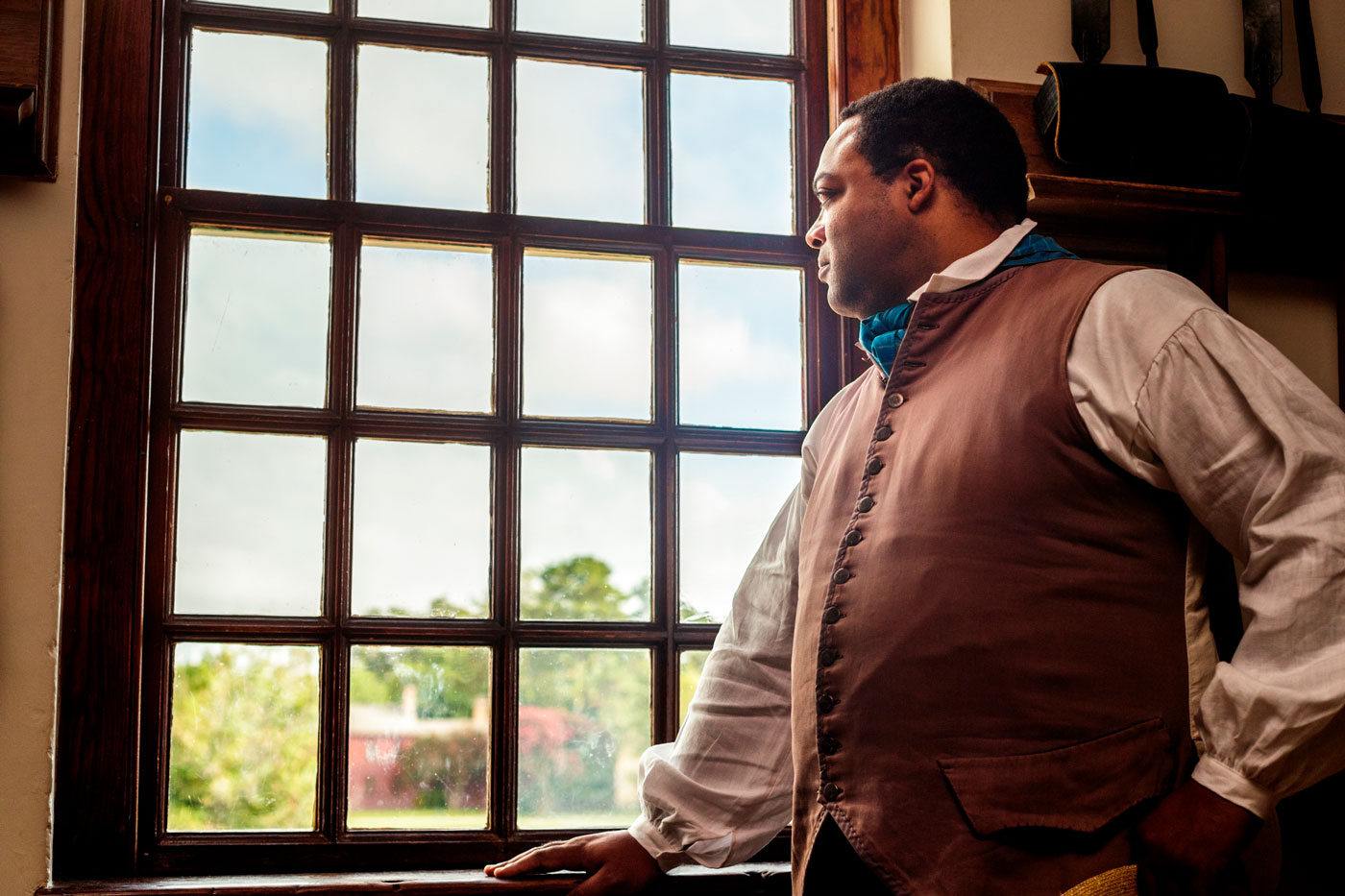
Resilience, Agency, and Resistance:
The African American Experience
Intended for educators in grades 3–8
June 15-20, 2025
This seminar explores the lives, roles, and perspectives of free and enslaved Black people in the Americas. Participants will pursue a deeper understanding of the diversity of the experiences of free and enslaved Black individuals from the period of British Colonization through the American Revolution. Participants will investigate primary sources, interact with interpreters and tradespeople, and learn how to use culturally responsive teaching strategies to effectively incorporate diverse narratives into curriculum.
Workshops
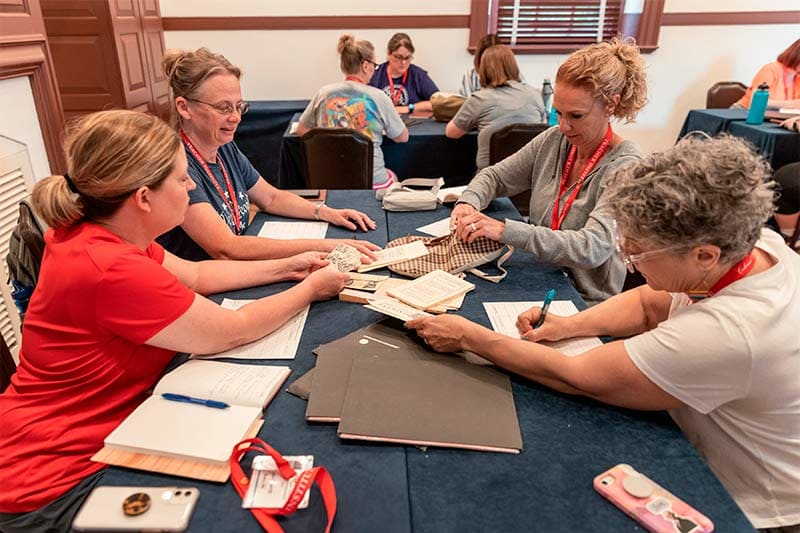
For Elementary and Secondary Teachers
In this one-day workshop in your district, a Colonial Williamsburg educator inspires teachers with interactive, media-rich strategies that link American history and active 21st-century civic engagement.

Customized Group Workshops in Williamsburg
The Colonial Williamsburg Professional Development staff can customize arrangements for your teacher group's (of 15 or more) visit to Colonial Williamsburg. Not only can we help you with the educational portion of your visit, but we can also make arrangements for Colonial Williamsburg lodging, meals, and local transportation. For more information or a price quotation on a customized teacher professional development program, please email teacherdevelopment@cwf.org.